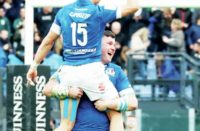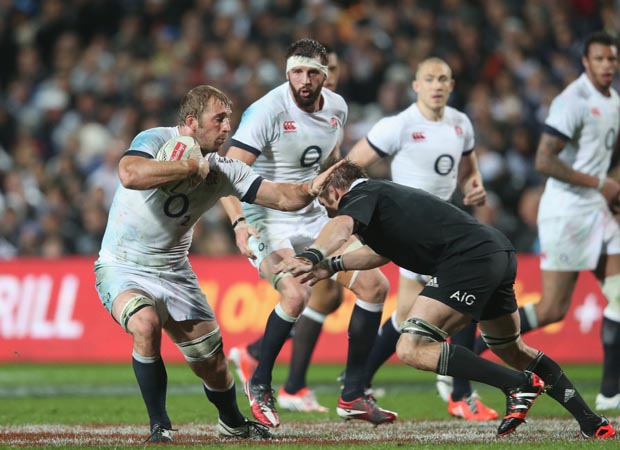 If England are sick of coming second, and return home determined to do a clean sweep in the autumn of their Southern Hemisphere opponents – All Blacks included – and then go on to win a Six Nations Grand Slam, then this 3-0 series whitewash in New Zealand will have been worthwhile.
If England are sick of coming second, and return home determined to do a clean sweep in the autumn of their Southern Hemisphere opponents – All Blacks included – and then go on to win a Six Nations Grand Slam, then this 3-0 series whitewash in New Zealand will have been worthwhile.
However, if it is another stepping stone to some undefined improvement, i.e. one that does not deliver in terms of winning the prizes that have so far eluded Stuart Lancaster's squad, then the benefits of this short, intense journey to the ‘Land of the Long White Cloud' could yet be outweighed by its deficits.
Although New Zealand coach Steve Hansen acknowledged after the first two Tests that his aim of sending England packing with a black cloud hanging over their World Cup expectations had not come to fruition entirely, he will be pleased that the series has finished with the All Blacks psychologically in pole position.
Having said that he did not think New Zealand had broken England's spirit, Hansen quite clearly set out to do exactly that in Hamilton, before the teams meet again in the first match of the autumn series at Twickenham.
New Zealand's superiority as the ‘Road-Runners' of world rugby was authenticated twice against an England side that tried to match them in terms of up-tempo rugby – each time more emphatically. After a brave attempt in Dunedin, England found that their execution at the upper end of the speedometer was not as skilful or precise as it needed to be, and it cost them the second Test. As for the third Test yesterday, the Red Rose men were simply not at the races.
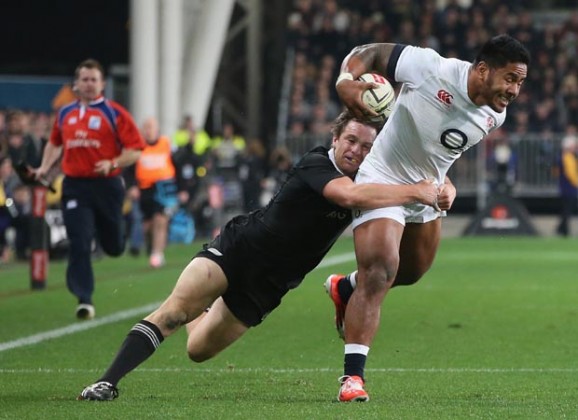
This series hinged on the outcome of the second Test, and it is one where Lancaster learned a lot about what his team was capable of – and we learned a lot about Lancaster's inexperience as an elite selector and coach.
I described the decision to put Manu Tuilagi on the wing last weekend in an away series decider against New Zealand as unfathomable, and nothing that has been said over the course of the final week of the tour has altered that view.
It was a gamble that backfired not because Tuilagi had a bad game – in many respects he played remarkably well – but because it deprived England of their main midfield threat, and one which had caused the All Blacks all manner of bother in the first Test.
New Zealand pundits, while equally flummoxed by the decision, were rubbing their hands in glee at England sticking their Panzer tank in the parking lot. It was an error which was compounded because Billy Twelvetrees, who was seriously short of match practice, was not up to the mark in terms of pace or precision when Lancaster opted for his Six Nations midfield combination at the Forsyth Barr stadium.
The result in Dunedin was an object lesson in what happens if you ignore your own strengths and then find yourself without the weaponry to beat the opposition in their own speedy area of excellence.
Going into the third Test in Hamilton there were signs that England had learned a harsh lesson. Before the match assistant coach Andy Farrell said: “We've got to be in control of our own game, and we want to play quick at the right times. You've got to be composed at the right times, and slow things down when needed to suit yourself.”
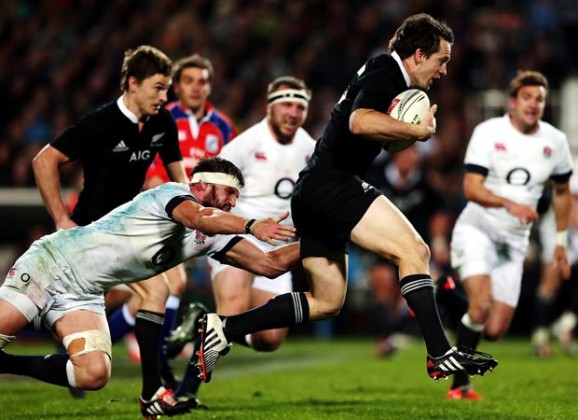
While there was an element in Farrell's overview of closing the stable door after the horse has bolted, the indication was that in future England would be searching to mix pragmatism with their spirit of adventure. It was a logical conclusion to come to when you consider how effective England's lineout drives, and their pick-and-go tactics around the breakdown, were in the first-half in Dunedin – as well as for large tracts of the opening Test in Auckland.
Mixing your options and challenging the opposition of a number of fronts, while at the same time switching the tempo of your game up and down is hardly rewriting the coaching template, but it does stretch the opposition to break point. If the England coaches want to demonstrate its effectiveness they need only put together a compilation from the build-up to 2003 by Clive Woodward's side.
The sadly deficient execution of the blueprint in the 36-13 reverse at the Waikato Stadium shows that they have a lot of homework still to do.
What else have we learned? Right up at the top has to be that England are short of pace in important areas.
Chris Robshaw was outstanding in the Auckland Test, capitalising on New Zealand's multiple errors and producing his best ball-carrying in an England shirt, but in Dunedin as the game speeded up he became increasingly peripheral. In the same way it also exposed the dangers of relying on a lock like Joe Launchbury to be an auxiliary openside.
What England lack is a fast turnover-winning, ball-slowing, support-running nuisance of a No.7, and those Premiership coaches who say that their day is done and that we are in the era of the back-row utility should take their heads out of the sand.
Top opensides win turnovers and hoover-up loose ball in critical areas at critical times – both of which win Tests. England have ignored their importance for too long, and that is why in Dunedin they barely won a tackle turn-over.
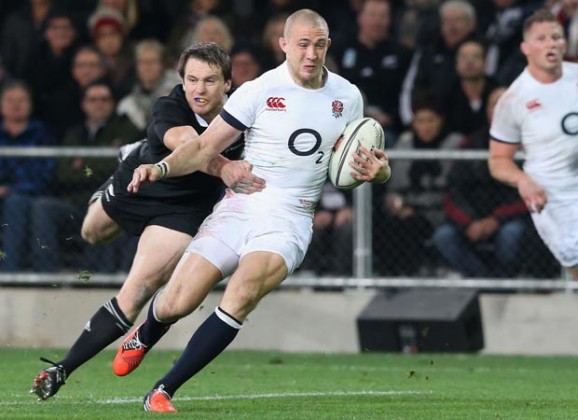
The other area where England require an injection of speed is the back three. Whether it's Ben Smith, Israel Dagg, Julian Savea, Cory Jane or Charles Piatau, the All Black wings and full-backs can fly. This tour has highlighted that, in sprinting terms, despite the headway made by Marland Yarde in the last two Tests, England are not as well blessed.
However, while there have been whispers that where pace is concerned Mike Brown is the problem, they are not worthy of much attention. Brown's form this season has been exceptional, and it should not be forgotten that in Dunedin he scored a try and threaded a pass through the eye of a needle to put Chris Ashton over at the death.
Brown may lack the speed of Ben Smith or Dagg but put two seriously fast men on the wings and it is less of an issue. Wing has been a problem position for England during Lancaster's tenure, and it is one that needs urgent resolution.
There is a suspicion with both Tuilagi and Brown put on the wing by the England head coach that he does not see it as a specialist position. Hopefully, this tour has put paid to experiments and it is seen as the domain of sharp-finishing specialist speed merchants rather than utility backs.
Anthony Watson did his reputation no harm with a blistering try in midweek against the Crusaders, while another try scorer, Chris Pennell, did as much as was humanly possible to press his case in the last quarter of the same match. I'm not sure how rapid the Worcester captain is, but Pennell left the England selectors in no doubt about the Ben Smith-like quality of his footwork, speed off the mark and finishing ability.
England can rein in the All Blacks in the autumn, but only if selection by the coach and execution of game plans by the players are much sharper and more inspired than they were in New Zealand during this June series.



